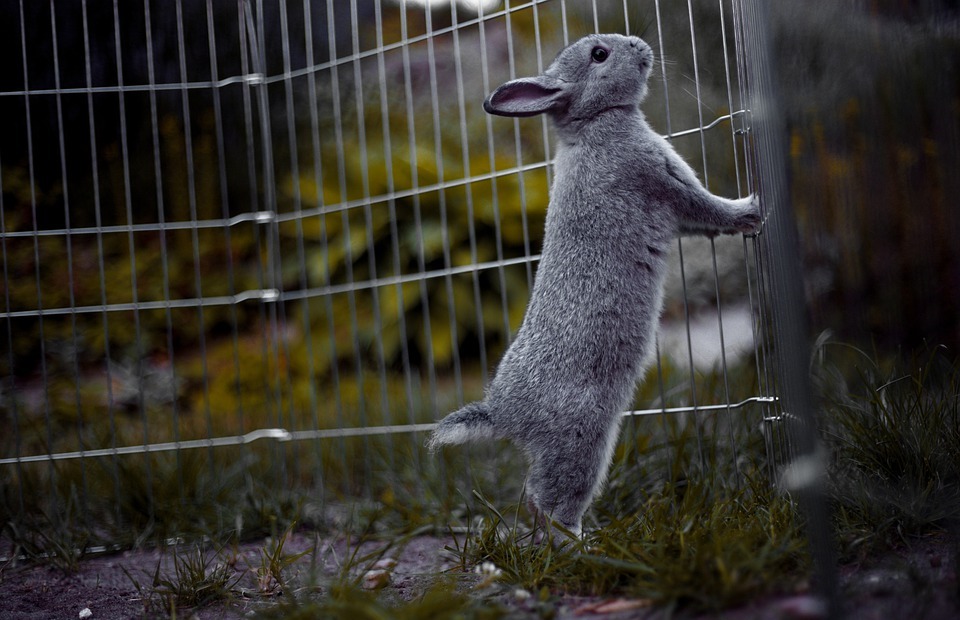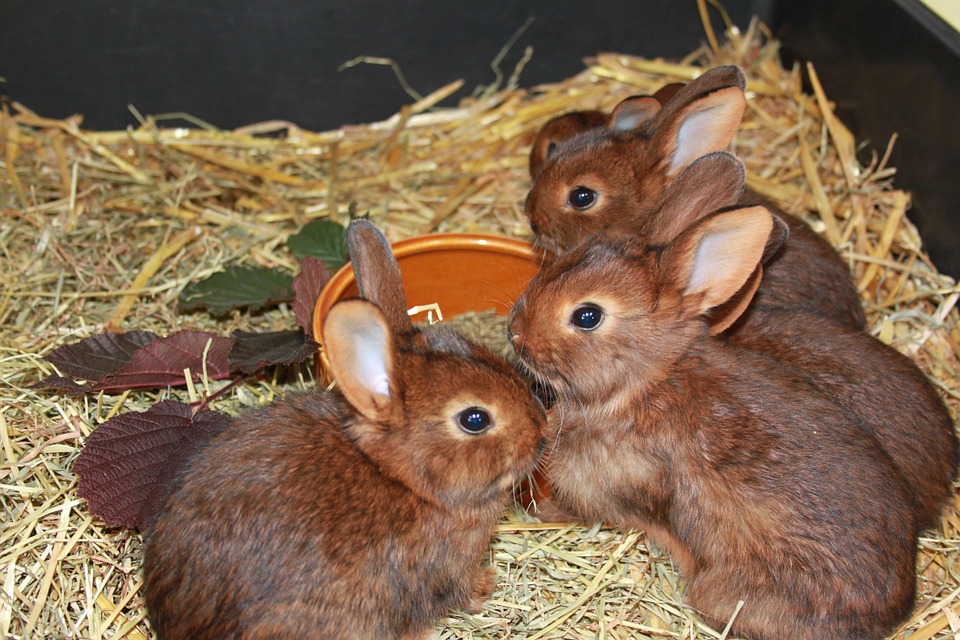This comprehensive guide explores the question of whether rabbits can eat bananas, delving into the nutritional content, potential risks, and safe consumption methods. We examine the different aspects of banana consumption for rabbits, including the frequency, quantity, and ripeness. Additionally, we discuss alternative healthy treats and provide essential tips for ensuring your bunny's well-being.
Part 1: The Nutritional Value of Bananas for Rabbits

1.1. A Look at the Carbohydrate Content
Bananas are primarily composed of carbohydrates, mainly in the form of simple sugars like fructose, glucose, and sucrose. While these sugars provide energy, they are not ideal for rabbits' delicate digestive systems, especially when consumed in excess.
1.2. Potassium and Other Vital Minerals
Bananas are a good source of potassium, an essential mineral that plays a crucial role in muscle contractions, nerve impulses, and maintaining fluid balance. They also contain other valuable minerals like magnesium, vitamin B6, and vitamin C, which contribute to overall health.
Part 2: Understanding the Risks of Banana Consumption

2.1. The High Sugar Content: A Dental Concern
Bananas contain a significant amount of sugar, which can contribute to dental problems in rabbits, such as tooth overgrowth and cavities. Excessive sugar intake can lead to a buildup of plaque and tartar, increasing the risk of dental infections.
2.2. Digestive Distress: Potential for Gas and Bloating
Rabbits have a sensitive digestive system, and bananas can cause digestive upset, including gas, bloating, and diarrhoea. The high fibre content can lead to a build-up of gas in the gut, causing discomfort and potential health complications.
2.3. The Risk of Obesity: Calorie Count and Weight Management
Bananas are relatively high in calories, and excessive consumption can lead to weight gain in rabbits, which can exacerbate existing health conditions and lead to new ones. Maintaining a healthy weight is crucial for a rabbit's overall well-being.
Part 3: The Art of Moderation: Safe Banana Consumption
3.1. Frequency: A Treat, Not a Staple
Bananas should be considered an occasional treat, not a staple food in a rabbit's diet. It is recommended to offer bananas no more than once or twice a week to avoid potential health issues.
3.2. Quantity: A Bite or Two is Plenty
The amount of banana given to a rabbit should be small, no larger than a small piece or a few bites. Overfeeding can lead to digestive upset, bloating, and other health problems.
3.3. Ripeness: Ripe is Better
Ripe bananas are generally safer for rabbits than unripe bananas. Ripe bananas are softer and easier to digest, while unripe bananas can be more difficult for rabbits to chew and digest, leading to digestive issues.
Part 4: Selecting the Perfect Banana
4.1. Organic and Pesticide-Free: A Safe Choice
Opt for organic bananas that are free from pesticides and other harmful chemicals. Pesticides can be toxic to rabbits, causing health problems ranging from mild discomfort to severe complications.
4.2. Avoiding Brown Spots: A Sign of Overripeness
Bananas with brown spots may indicate that they are overripe and may have a higher sugar content. It is best to choose bananas that are yellow and blemish-free for a safer option.
4.3. Skin and Seeds: Removal is Essential
The skin of bananas is difficult for rabbits to digest and should be removed before feeding. The seeds should also be removed as they contain a substance that can be toxic to rabbits in large quantities.
Part 5: Alternatives to Bananas: Healthy Treats for Rabbits
5.1. Fresh Herbs and Greens: A Nutrient-Rich Option
Fresh herbs and greens, such as parsley, cilantro, basil, and dandelion greens, are excellent sources of vitamins and minerals for rabbits. These greens also provide essential fibre and antioxidants.
5.2. Timothy Hay and Alfalfa Hay: Essential for a Balanced Diet
Timothy hay and alfalfa hay are essential for a rabbit's diet, providing essential nutrients, fibre, and dental stimulation. These hays promote healthy digestion and contribute to overall well-being.
5.3. Commercial Rabbit Treats: A Variety of Options
Commercial rabbit treats are available in a variety of flavours and textures. Choose treats that are low in sugar and high in fibre to ensure a healthy and satisfying snack.
5.4. Fresh Vegetables: A Diverse Selection
A variety of fresh vegetables, such as carrots, bell peppers, and broccoli, can be offered as occasional treats. However, these should be given in moderation due to their sugar content and potential for digestive upset.
Part 6: Monitoring Your Rabbit's Health
6.1. Observing Changes in Behaviour: Identifying Potential Issues
Pay attention to any changes in your rabbit's behaviour, such as lethargy, loss of appetite, or diarrhoea. These could indicate digestive upset or other health problems.
6.2. Checking for Dental Issues: Regular Inspections
Regularly check your rabbit's teeth for any signs of overgrowth or dental problems. If you notice any abnormalities, consult a veterinarian for proper treatment and care.
6.3. Maintaining a Healthy Diet: A Foundation for Wellness
Ensure your rabbit has a balanced diet that consists primarily of hay, fresh vegetables, and a small amount of commercial pellets. This balanced diet provides essential nutrients and supports overall health.
Part 7: FAQs
7.1. Can baby rabbits eat bananas?
It is generally not recommended to feed bananas to baby rabbits, as their digestive systems are more sensitive and prone to complications from high sugar content.
7.2. Can rabbits eat banana peels?
Banana peels are difficult for rabbits to digest and should be avoided. They can cause digestive upset and may even be a choking hazard.
7.3. What are the signs of a banana overdose in rabbits?
Signs of a banana overdose in rabbits can include diarrhoea, bloating, lethargy, loss of appetite, and excessive gas. If you observe these symptoms, consult a veterinarian immediately.
7.4. Can rabbits eat banana chips?
Banana chips are generally not recommended for rabbits due to their high sugar content and processed nature. They often contain added sugar and preservatives that can be harmful to rabbits.
7.5. Can rabbits eat banana bread?
Banana bread is not suitable for rabbits due to its high sugar content, added ingredients, and potential for digestive upset. It is best to stick to natural and healthy treats for your rabbit.
7.6. What are some other fruits that rabbits can eat?
Some other fruits that rabbits can eat in moderation include strawberries, blueberries, and raspberries. However, it is always best to consult with a veterinarian for specific dietary recommendations for your rabbit's individual needs.
Everyone is watching
-

Do Rabbits Lay Eggs? (The Surprising Truth)
OTHER TYPES OF PETSThis article will unravel the common misconception that rabbits lay eggs, exploring the fascinating world of r...
-

Can Rabbits Eat Grapes? A Guide to Safe Rabbit Treats
OTHER TYPES OF PETSThis comprehensive guide will explore the safety and suitability of grapes for rabbits, providing detailed inf...
-

What's a Group of Rabbits Called? (A Comprehensive Guide)
OTHER TYPES OF PETSThis article delves into the fascinating world of rabbits, exploring the various terms used to describe a grou...
-

Predators That Hunt Rabbits: A Guide to Natural Enemies
OTHER TYPES OF PETSI've always been fascinated by the circle of life, that delicate dance between predator and prey. Growing up ...
-

Are Rabbits Nocturnal Animals?
OTHER TYPES OF PETSThe question of whether rabbits are nocturnal animals is a fascinating one, with a surprisingly complex answer...
